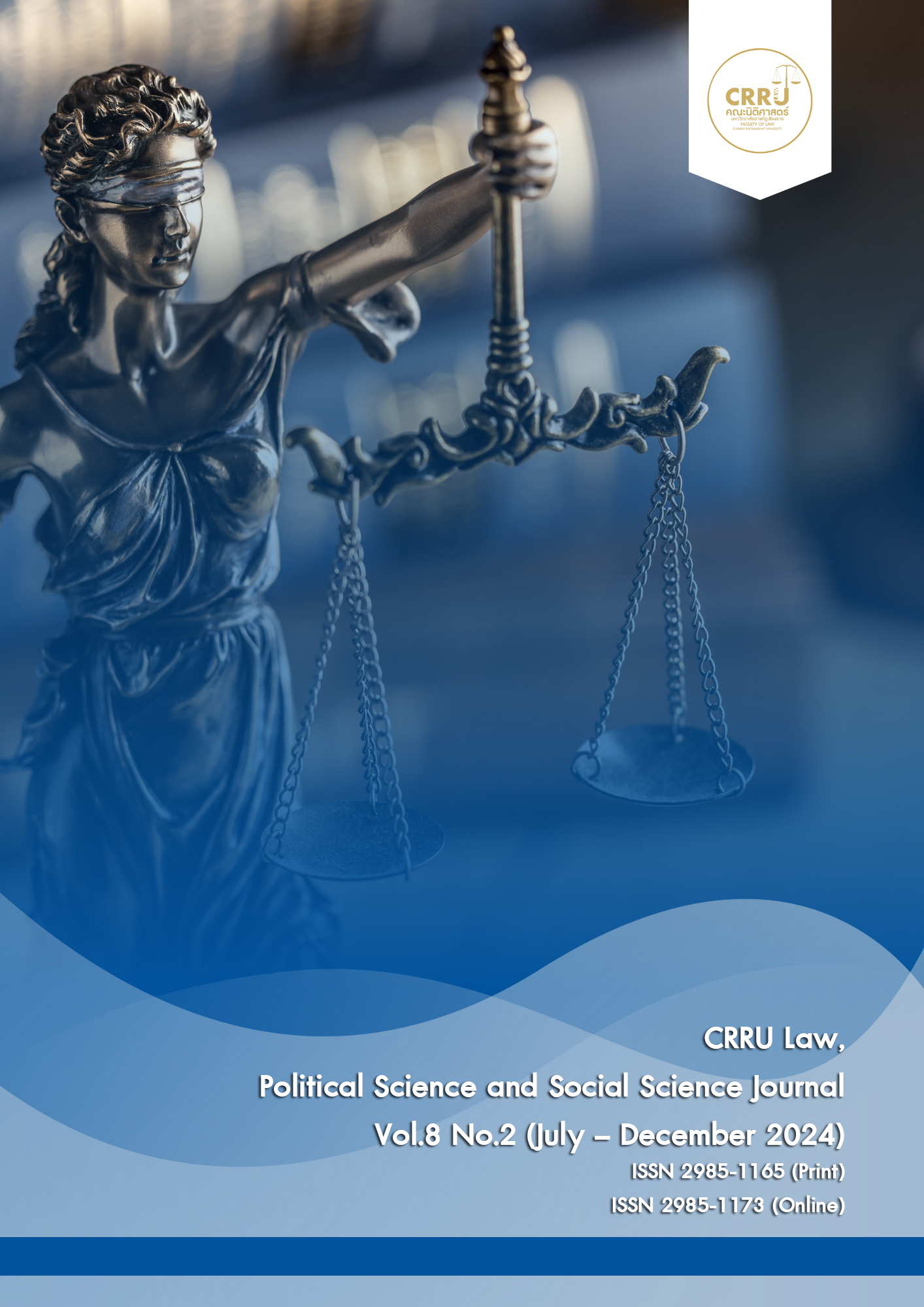แนวปฏิบัติที่ดีในการจัดการขยะมูลฝอยชุมชนเพื่อการท่องเที่ยว กรณีองค์กรปกครองส่วนท้องถิ่นในภาคเหนือตอนบน
Main Article Content
บทคัดย่อ
การวิจัยครั้งนี้มีวัตถุประสงค์เพื่อศึกษาแนวปฏิบัติที่ดีในการจัดการขยะมูลฝอยชุมชนเพื่อการท่องเที่ยว กรณีองค์กรปกครองส่วนท้องถิ่นในภาคเหนือตอนบน เป็นการศึกษาสถานการณ์การจัดการขยะมูลฝอยชุมชนที่เป็นเมืองท่องเที่ยว และถอดบทเรียนการจัดการขยะขององค์กรปกครองส่วนท้องถิ่นในระดับต่าง ๆ จากนั้นนำผลจากการศึกษาการถอดบทเรียนมาพัฒนารูปแบบและกลไกการขับเคลื่อนการบริหารจัดการขยะตามขนาดและบริบทขององค์กรปกครองส่วนท้องถิ่นแบบมีส่วนร่วมของทุกภาคส่วน และจัดทำข้อเสนอแนะเชิงนโยบายในการบริหารจัดการขยะตามขนาดและบริบทขององค์กรปกครองส่วนท้องถิ่น โดยมีจำนวนประชากรและกลุ่มตัวอย่างในเขตพื้นที่ภาคเหนือตอนบน จำแนกตามขนาดขององค์กรปกครองส่วนท้องถิ่น กลุ่มตัวอย่างที่ใช้ในการถอดบทเรียนได้แก่ องค์กรปกครองส่วนท้องถิ่นระดับองค์การบริหารส่วนตำบล, ระดับเทศบาลตำบล และระดับเทศบาลเมือง จำนวน 8 จังหวัด โดยจำแนกเป็นจังหวัดละ 16 พื้นที่ในภาคเหนือตอนบน มีวิธีการดำเนินงานวิจัยเริ่มจากการคัดเลือกพื้นที่เป้าหมายตามที่ได้กำหนดไว้ จากนั้นทำการศึกษาและถอดบทเรียนสถานการณ์การบริหารจัดการขยะในพื้นที่เป้าหมายที่มีแหล่งท่องเที่ยวในชุมชน มาทำการวิเคราะห์และสังเคราะห์ข้อมูล เพื่อพัฒนารูปแบบและกลไกการขับเคลื่อนการบริหารจัดการขยะ จากผลจากการศึกษาพบว่า กลุ่มองค์การบริหารส่วนตำบลและเทศบาลตำบลในภาคเหนือตอนบน มีการจัดการขยะต้นทางโดยครัวเรือนมีการจัดการขยะอินทรีย์ด้วยตัวเอง ทั้งนี้การจัดการขยะกลางทางและขยะปลายทางนั้น องค์กรปกครองส่วนท้องถิ่นมีหน้าที่รับผิดชอบเป็นหลัก ซึ่งการจัดการปลายทางส่วนใหญ่นั้นเป็นการจัดการด้วยการฝังกลบและเตาเผา มีบางพื้นที่ได้มีการจัดการปลายทางโดยการส่งไปกำจัดในพื้นที่อื่น และกลุ่มเทศบาลเมืองมีการจัดการขยะต้นทาง 2 แบบ คือ 1) ประชาชนจัดการขยะได้ด้วยตัวของชุมชนเอง และส่งให้องค์กรปกครองส่วนท้องถิ่นเป็นผู้รับผิดชอบในการกำจัดสำหรับการจัดการกลางทางและปลายทาง 2) องค์กรปกครองส่วนท้องถิ่นมีหน้าที่รับผิดชอบหลักและองค์กรปกครองส่วนท้องถิ่นสร้างความร่วมมือระหว่างเอกชนในการกำจัด และการติดตามควบคุม ประเมินผล การคัดแยกขยะในครัวเรือน เพื่อสร้างแนวปฏิบัติที่ดีในการจัดการขยะเพื่อส่งเสริมการท่องเที่ยว และต้องอาศัยบทบาทการมีส่วนร่วมระหว่างองค์กรปกครองส่วนท้องถิ่น และชุมชน ของกลุ่มองค์การบริหารส่วนตำบลในการจัดการขยะในแหล่งท่องเที่ยว/แหล่งเรียนรู้ของชุมชนอย่างมีประสิทธิภาพ และเกิดประโยชน์สูงสุด
Article Details
เอกสารอ้างอิง
เดือนเด่น นาคสีหรา. “การพัฒนามาตรการกฎหมายในการจัดการมูลฝอยในชุมชนท้องถิ่นอย่างยั่งยืน: กรณีศึกษาเทศบาลตำบลนาอ้อ จังหวัดเลย.” วารสารนิติศาสตร์ มหาวิทยาลัยธรรมศาสตร์ 47, ฉ.1 (มีนาคม 2561): 135-153.
ปเนต มโนมัยวิบูลย์ และ พรรณนิภา ดอกไม้งาม, ขยะจากมุมมองการคลังและสิ่งแวดล้อม: ลดต้นทุนที่ต้นทาง บรรณาธิการโดย มิ่งสรรพ์ ขาวสอาด (เชียงใหม่: มูลนิธิสถาบันศึกษานโยบายสาธารณะ สำนักงานกองทุนสนับสนุนการวิจัย. มหาวิทยาลัยแม่ฟ้าหลวง, 2562)
สำนักงานคณะกรรมการพัฒนาการเศรษฐกิจและสังคมแห่งชาติ.แผนพัฒนาเศรษฐกิจและสังคมแห่งชาติ ฉบับที่12 (พ.ศ.2560 - 2564).กรุงเทพฯ: สำนักงานคณะกรรมการพัฒนาการเศรษฐกิจและสังคมแห่งชาติ สำนักนายกรัฐมนตรี.
พงศ์พันธุ์ เอ่งฉ้วนและสุนีย์ มัลลิกะมาลย์, “ข้อบัญญัติท้องถิ่นว่าด้วยการจัดการขยะและน้ำเสียในท้องถิ่นที่เป็นเมืองท่องเที่ยวทางทะเล จังหวัดกระบี่,” วารสารสหวิทยาการสังคมศาสตร์และการสื่อสาร มหาวิทยาลัยราชภัฏรำไพพรรณี 5, ฉ.3 (กรกฏาคม-กันยายน 2565): 63-72.
ภูษิต แจ่มศรี และสัมฤทธิ์ ยศสมศักดิ์. “รูปแบบการจัดการขยะมูลฝอยของเทศบาลขนาดใหญ่ในเขตพื้นที่อุตสาหกรรมภาคตะวันออกของประเทศไทย.” วารสารด้านการบริหารรัฐกิจและการเมือง มหาวิทยาลัยบูรพา 11, ฉ.2 (กรกฏาคม-ธันวาคม 2565): 54-71.
กระทรวงทรัพยากรธรรมชาติและสิ่งแวดล้อม, กรมควบคุมมลพิษ (Pollution Control Department.). ระบบสารสนเทศด้านการจัดการขยะมูลฝอย ปี 2563, ศูนย์เทคโนโลยีสารสนเทศและการสื่อสาร (ส่วนพัฒนาและบริหารระบบสารสนเทศ)
วีระพล ทองมา. การท่องเที่ยวโดยชุมชน (Community Based Tourism :CBT) สำหรับการพัฒนาคุณภาพชีวิตของชุมชนในเขตที่ดินป่าไม้. เชียงใหม่: มหาวิทยาลัยแม่โจ้, 2547.
วริศรา สมเกียรติกุล. “การมีส่วนร่วมในการจัดการสิ่งแวดล้อมของชุมชนเพื่อพัฒนาแหล่งท่องเที่ยว: กรณีศึกษา ชุมชนน้ำผุด อำเภอละงู จังหวัดสตูล.” วารสารวิชาการ มหาวิทยาลัยราชภัฏอุตรดิตถ์ 13. ฉ.1 (มกราคม-มิถุนายน 2561): 48-62.
องค์การบริหารการพัฒนาพื้นที่พิเศษเพื่อการท่องเที่ยวอย่างยั่งยืน. สถานการณ์ขยะมูลฝอยในปี 2564.รายงานสรุปผลการดำเนินกิจกรรมพัฒนาแนวทางการจัดการขยะของแหล่งท่องเที่ยวพื้นที่พิเศษ 7 (ภายใต้โครงการบริหารจัดการทรัพยากรธรรมชาติและสิ่งแวดล้อมเพื่อการท่องเที่ยว)
สุวดี บุญมาจรินนท์, จันทร์จิต ฐนะศิริ และมนรัตน์ ใจเอื้อ. “การออกแบบประสบการณืการท่องเที่ยวโดยชุมชนผ่านกิจกรรมการท่องเที่ยวเชิงสร้างสรรค์บนฐานโมเดลเศรษฐกิจสู่การพัฒนาที่ยั่งยืน.” วารสารวิชาการศรีปทุม ชลบุรี 19, ฉ.2 (ตุลาคม-ธันวาคม 2565): 84-91.


